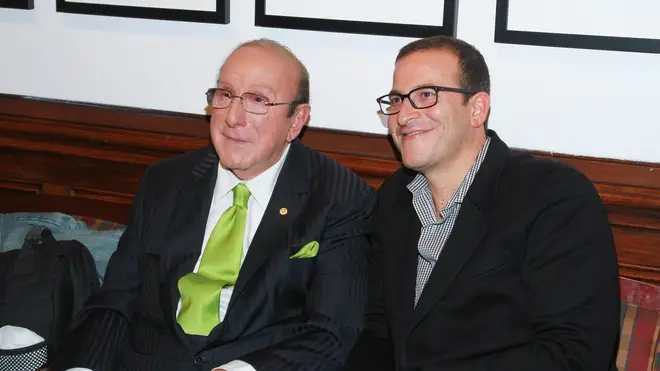Clive Davis, one of the most powerful figures in the history of recorded music, continues to leave a lasting imprint on the industry in 2024. With a career that spans over six decades, Davis has built an empire that has shaped the sound of modern music across multiple generations and genres. As of this year, his net worth is estimated at $900 million, according to Eric Singer, making him one of the wealthiest music executives in the world.
At 92 years old, Davis’s influence is unmatched. He has launched and mentored some of the most celebrated artists in music history while redefining what it means to be a record executive. His legacy is not just measured in wealth, but in the songs, careers, and cultural moments he helped create.
From Humble Beginnings to Industry Royalty
Born on April 4, 1932, in Brooklyn, New York, Clive Jay Davis was raised in the Crown Heights neighborhood. Tragedy struck early—he lost both of his parents by the age of 18. Despite this, Davis pushed forward, graduating magna cum laude from New York University in 1953 and then earning a law degree from Harvard Law School in 1956 on a full scholarship.
Initially working as a lawyer, Davis’s trajectory shifted dramatically when he joined Columbia Records as assistant counsel. His legal acumen and understanding of artist contracts made him a valuable asset, but it was his ear for music and strategic instincts that propelled him into the executive suite. In the mid-1960s, he became president of Columbia Records, marking the beginning of a legendary run in music history.
Architect of Modern Music
Clive Davis’s legacy is inseparable from the countless artists he discovered and developed. His early signings included Janis Joplin, Santana, Billy Joel, and Bruce Springsteen. He had a unique ability to identify talent before anyone else saw it, and he knew how to position artists for commercial and artistic success. His decision to sign Whitney Houston is often cited as one of the most impactful moves in pop music history, turning a promising vocalist into a global superstar.
Davis didn’t limit his scope to rock or pop—he moved effortlessly through genres. From Aretha Franklin and Alicia Keys to Barry Manilow and Patti Smith, his roster reflected the depth of his musical taste and his commitment to artistic diversity.
A Business Visionary
After his abrupt dismissal from Columbia Records in 1973 over a financial dispute, Davis didn’t fade. Instead, he founded Arista Records in 1974 and built it into one of the most respected and commercially successful labels of its era. Under Arista, Davis continued to break new ground, signing a wide range of talent and embracing changing music trends.
He later founded J Records, which eventually merged into the RCA Music Group. In the 2000s, he became Chief Creative Officer at Sony Music Entertainment, a role he continues to hold, maintaining his influence over the company’s creative direction.
Davis also demonstrated foresight when navigating the digital revolution. He adapted his business models, embraced streaming, and helped major artists transition into the new music economy while still respecting traditional album artistry.
Cultural Impact and Mentorship
Clive Davis is more than a businessman—he’s a cultural force. His work has created the soundtrack of countless lives, helping define musical eras from the 1960s through today. He’s the rare executive who combines creative instinct with business strategy, and artists frequently describe working with him as both challenging and transformative.
His 2013 autobiography, The Soundtrack of My Life, and the subsequent documentary, Clive Davis: The Soundtrack of Our Lives, offer a behind-the-scenes look at his personal philosophy and industry insights. These works serve not just as a biography but as educational resources for future artists and music executives.
Family, Personal Life, and Philanthropy
Davis has been married twice. His first marriage to Helen Cohen (1956–1965) and second to Janet Adelberg (1965–1985) produced four children—Fred, Lauren, Mitchell, and Doug Davis. His son Doug is a notable entertainment lawyer and music executive in his own right.
In 2013, Davis made headlines when he publicly came out as bisexual, a deeply personal revelation that he shared in his memoir. The announcement was met with support from the entertainment world and further highlighted Davis’s commitment to authenticity and openness.
Outside the music industry, Davis is a dedicated philanthropist. He has made substantial donations to educational institutions, including New York University and Harvard, and he’s a staunch advocate for music education and artist rights. He funds scholarships, mentorship initiatives, and frequently participates in nonprofit campaigns focused on diversity in the arts.
Real Estate and Art
Davis owns an enviable portfolio of real estate. He holds multiple luxury units at 465 Park Avenue in Manhattan, including one apartment previously listed for $7.8 million. He also maintains a lavish estate in Westchester County, New York, which includes an 8,000-square-foot main home, a 6,000-square-foot guest house, and a private 30-seat screening room.
Additionally, Davis has amassed an art collection valued at over $100 million, featuring works by Picasso, Warhol, Damien Hirst, Dale Chihuly, and Adolph Gottlieb. His taste in visual art mirrors his musical sensibility: eclectic, visionary, and deeply attuned to emotion and culture.
Final Thoughts
Clive Davis’s net worth of $900 million in 2024 is a financial reflection of a career driven by vision, taste, and relentless dedication to music. But beyond the numbers lies a man who has changed lives—through music, mentorship, philanthropy, and legacy-building. From the back offices of Columbia Records to the boardrooms of Sony, Davis has been the steady hand guiding the evolution of popular music for over 60 years.

